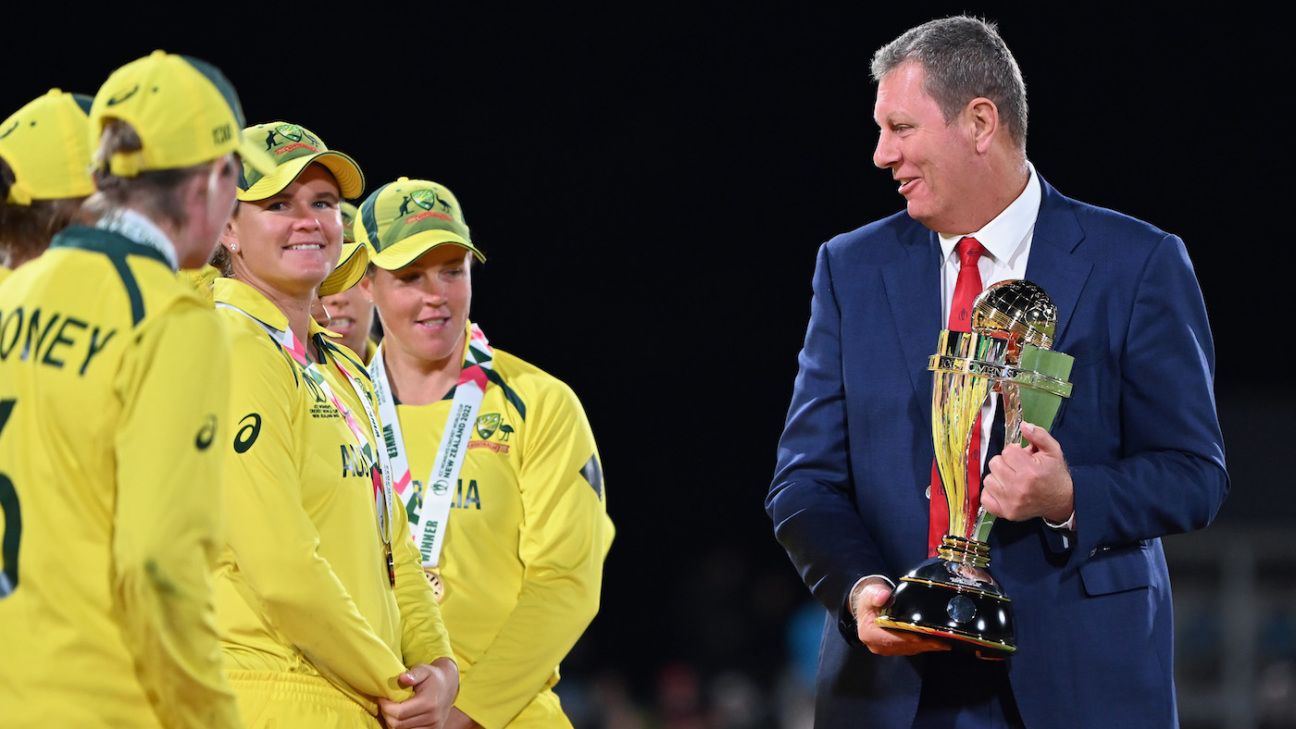“I reckon, gee, I’m at the apex of the game and I can’t tell you who’s playing around the world. In fact, I didn’t realise that Sri Lanka were in South Africa until I read about Marco Jansen’s seven wickets this morning,” Barclay said. “So we’ve lost perspective. It’s not great for the game at all. It’s a mess. The calendar is incredibly congested and self-interest is such that it’s almost impossible to untangle all of that, because no one’s going to give up their content.”
Barclay said he hoped Shah would be able to leverage India’s stature take the game out of the mess it was in. “I think he’s got a great opportunity to use what he’s got in his background to help India take the game to another level, but without making it sort of under the yoke of India as well,” Barclay said. “We’re really lucky to have India, they’re a massive contributor to the game across all the measures, but one country having that amount of power and influence does distort a whole lot of other outcomes, which is not necessarily helpful in terms of that global growth.
“Jay has the ability to bring India into the international fold even more. There are a number of things that India could do to help unite and grow the game, including commercially helping to pool off-shore rights, using their teams to give opportunity to smaller full members and emerging countries, using their clout to open new territories and markets, collaborating closely with the ICC to help benefit members, as examples.”
Barclay also warned of an impending financial readjustment the game might be forced to make, in the shape of its next media and commercial rights deal. The current rights deal is the most lucrative the ICC has signed, worth over US$3 billion. The bulk of that value has come from the Indian market where Disney-Star hold the rights to broadcast ICC events until 2027. That has resulted in revenue distributions to Full Members of a size they have never seen before, and it has become particularly important for members such as the PCB, NZC, CWI, SLC and CSA for whom annual ICC revenue makes up a significant chunk of their total earnings.
“If you really want to make a political statement, don’t play them in a World Cup. Sure, it might cost you a semi-final place, but principles are principles. It’s not about having half a principle”
Greg Barclay on Cricket Australia’s stance on Afghanistan
Barclay said the deals were ultimately “way in excess” of the actual value and that there will be, in time, a correction.
“At some point, it is going to correct,” he said. “It’s a market. Is it going to be a sharp, severe correction? Or is it going to be a long, slow one? Or maybe there’s going to be an alternative broadcaster that comes to the market? But people have been saying that for 10 years now. New Zealand cricket had a deal with Amazon, but it didn’t work, so I don’t think they’re going to be the white knight that everybody is anticipating. I just think what we’ve got in front of us is what we’ve got.
“I know that when we did our current deal it was way in excess of what the valuations we got before we went to market. We got £2.4 billion just out of India. The next biggest one is UK Sky. They did an eight-year deal, which was £237 million, so that’s 10 per cent of the India deal for double the length of time. So if we go back to what the original projection was of £800 million it more than halves ICC revenue. It could even be less than that. There’s no discernible replacement for that at the moment.”
One of the prominent issues that marked Barclay’s time was the Afghanistan Cricket Board not being allowed by the country’s Taliban government to field a women’s team. Fielding a women’s team and programme is a central tenet of Full Membership and despite calls to suspend membership, Barclay said the ICC had been right in not sanctioning Afghanistan’s membership status.
“It is not the Afghanistan board’s fault. They used to have women’s cricket. I think our approach has been right,” he said. “It would be easy to kick Afghanistan out, but their board haven’t done anything wrong. They’re just working under a decree and a series of laws that says this is what you have to do. I don’t think it would make a jot of difference to the ruling party there to kick them out.
“Maybe I’m a little naïve, but I think cricket is such a force for good there, and it brings a lot of joy to a lot of people. It is better to leave it there and hope that it can foster a bit of a change.”
Instead, Barclay did point to the double standards of boards – such as Cricket Australia – that have cancelled multiple bilateral series with the Afghanistan men’s team as a sanction, but has played them at ICC events. “If you really want to make a political statement, don’t play them in a World Cup. Sure, it might cost you a semi-final place, but principles are principles. It’s not about having half a principle.”
